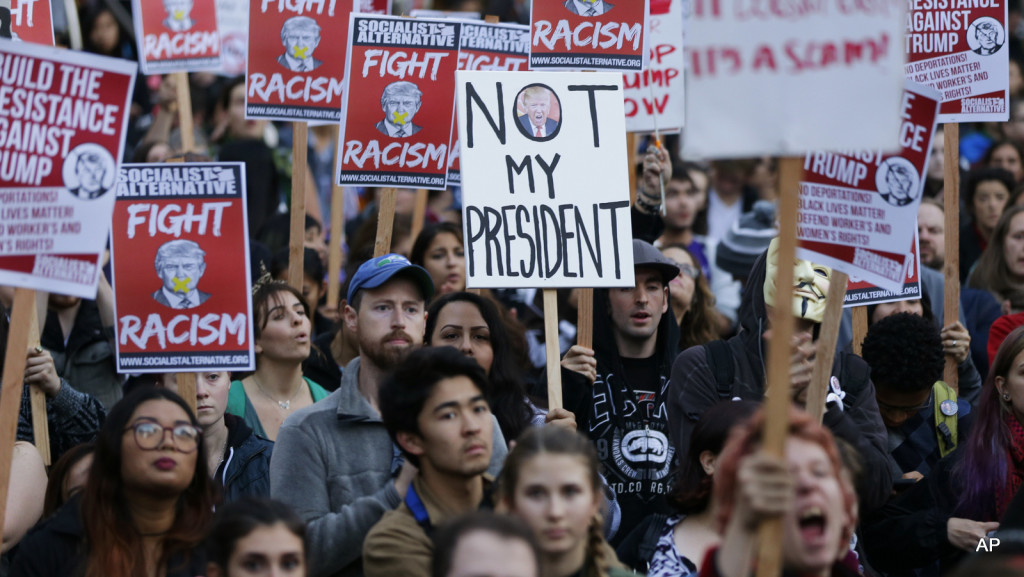 As the new APAGS Chair, I will have the privilege of representing graduate students within the American Psychological Association beginning August 8th. By way of introduction to those of you who may not know me, I wanted to share a few thoughts and reflections in advance of the beginning of my term.
As the new APAGS Chair, I will have the privilege of representing graduate students within the American Psychological Association beginning August 8th. By way of introduction to those of you who may not know me, I wanted to share a few thoughts and reflections in advance of the beginning of my term.
I am a very political person. I believe wholeheartedly in the power of community organizing, the necessity of labor rights, stronger protections for working people, and the critical importance of creating a more just society that offers opportunity for all, regardless of race, class, ethnicity, sexual orientation, or gender identity.
For me, becoming a psychologist necessitates being politically minded. Just look at the world we live in: The post-war order that secured peace and stability in Europe is under siege; Iraq and Syria are engulfed in intractable civil wars; and terrorism continues to claim the lives of innocent civilians around the world. At home, women still earn only three-quarters of what equally-qualified men earn; African-Americans disproportionately suffer the injustices of mass incarceration, and others find that a routine traffic stop by a police officer may have life-threatening consequences; rural and impoverished communities have been torn apart by the opioid and methamphetamine crises; many Americans remain unemployed or underemployed in the wake of the 2008 economic crisis; student debt has ensnared millions of Americans in a financial trap from which they find it impossible to escape; Americans continue to lead the Western world in gun deaths, most of them the result of suicide; and, as a result of these and other developments, racism, sexism, and xenophobia have found new political purchase in our social and cultural landscape.
Professional psychology likewise faces enormous challenges. The findings of the APA’s Independent Review (i.e., the Hoffman Report) have undermined the public’s faith in our profession’s most prominent institution. The “replication crisis” has prompted serious challenges to longstanding claims made by many research psychologists. Psychologists remain excluded from the Medicare definition of a physician, barring psychologists access to resources critical for supplying the public with quality mental health care. Despite the proven effectiveness of psychotherapy, too many Americans still lack access to the care they so desperately need.
Psychologists must be involved in finding solutions to all of these problems. Yet, for students, this can be overwhelming. “The world has its problems, but I just need to finish my dissertation.” “I am concerned about the challenges facing our profession, but right now I just need to match for internship.” I have heard these and other similar statements many times.
Graduate school can be difficult, and many obstacles must be overcome to complete a doctorate in psychology. Believe me, I know just as well as you do. However, I strongly believe that we are living in a significant period in both our nation’s history and that of our profession. Maybe you’ve asked a parent what they did during the Summer of Love or what it felt like to see the Berlin Wall come tumbling down. I believe that great changes are taking place in our lifetimes, right now, that demand our presence and action. More importantly, they demand our skills, knowledge, passion, and talents as psychologists in training. Ask yourself: Years from now, when your family asks you what you did when the world changed in 2017, what do you imagine yourself saying? Where were you standing?
Where are you standing?
Even though there are enormous challenges facing our society and our world, I remain confident that the world of tomorrow will be better than the world of today. I have that hope because I have seen the future. The future is us. The maturity, vision, energy, and character of our generation is unparalleled, and I know that because I have had the privilege of hearing so many of you share your dreams and ideas. Already we have accomplished so much, and we’re just getting started.
As APAGS Chair, I promise to do my very best to show APA and the field of psychology the energy and promise that you bring to the table. I believe that the student voice is critical to the future of our profession and our society, and I will give everything I can to ensure that the student voice is heard. In turn, I ask that you keep bringing your energy, creativity, passion, and vision to your research, your practice, your education, your advocacy, and your activism. The future is counting on us.
I am an open book. You can follow me on Twitter at @IanAGutierrez.
Author Bio:
Ian A. Gutierrez, MA, is a graduate student at the University of Connecticut pursuing his doctorate in Clinical Psychology and the 2016-2017 Chair of the American Psychological Association of Graduate Students (APAGS). His research focuses on the development of belief systems over the life span.
Editor’s Note: Interested in becoming a part of APAGS Leadership? There are many ways to get involved!


 This summer, I joined psychologists and lawyers from across the Midatlantic and New York to visit the
This summer, I joined psychologists and lawyers from across the Midatlantic and New York to visit the 
 As the new
As the new 